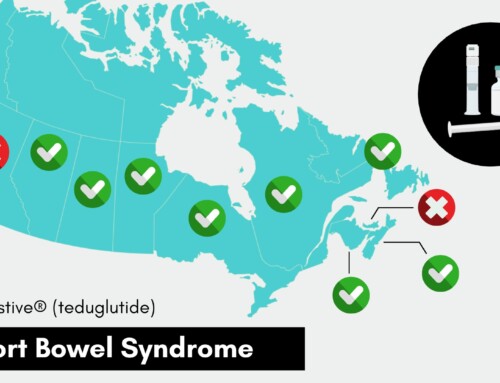Journal Article:
The IBS Patient Experience
Gail Attara,
President & Chief Executive officer
Gastrointestinal Society
Irritable bowel syndrome (IBS) is a common functional condition that affects around 13-20% of Canadians, but a lot of people with IBS don’t seek help, despite often debilitating symptoms. These include abdominal pain, bloating, and constipation and/or diarrhea. There are three subtypes of IBS, depending on whether an individual experiences mostly constipation (IBS-C), mostly diarrhea (IBS-D), or a combination of both (IBS-M).
The Survey
To better understand the patient experiences of those with IBS, we conducted a survey, and we published some preliminary results in a report. In October 2023, we published detailed, peer-reviewed results in the Journal of the Canadian Association of Gastroenterology.1 My co-authors on this study included CSIR board member Dr. Ganive Bhinder, GI Society medical advisors Dr. James Gray (chair), Dr. Javier Meza-Cardona, Dr. Alan Low, and Guy Aumais. We have been working on this study for years and are excited to see it finally released. We made it open access so you can read the full article for free.
We focused on the impact the symptoms of IBS have on several areas of life, including productivity, quality of life, healthcare utilization, treatment access, and corresponding symptom relief. We also wanted to compare how those of each subtype experienced these issues. We had 2,470 qualified respondents from across Canada: 19% with IBS-C, 37% with IBS-D, and 44% with IBS-M.
Results
There are multiple types of treatments available for people with IBS, including dietary changes, probiotics, and medications. Many patients try a variety of these, and some even use several at once. However, despite all these interventions, they still have trouble managing their symptoms.
In the survey, 23% of respondents reported that symptoms often interfered with daily life and 46% said they sometimes interfere with daily life. The most common symptoms across all subtypes were abdominal pain and bloating. However, some differences between subtypes include that people with IBS-C had worse bloating, straining, and tenesmus (feeling of incomplete bowel movements), whereas those with IBS-D had worse urgency and incontinence.
One other area of difficulty is that those with IBS are more likely to experience certain mental health conditions. In this survey, 30-34% of respondents had a mood disorder (e.g., depression, bipolar disorder) and 25-30% had an anxiety disorder (e.g., general anxiety, OCD, PTSD).
Some common ways that IBS impacted quality of life included dietary limitations, social limitations, and having to miss work or school due to symptoms. One area of concern for many is access to washrooms when in public, with some people worrying about experiencing an accident. However, poop anxiety was another issue, as some feel nervous using public toilets. You might remember our survey on Poop Anxiety, which spans all individuals, even those who do not have a digestive disease or disorder.
IBS is a complex, chronic, functional condition than can greatly affect a person’s day-to-day life.





















